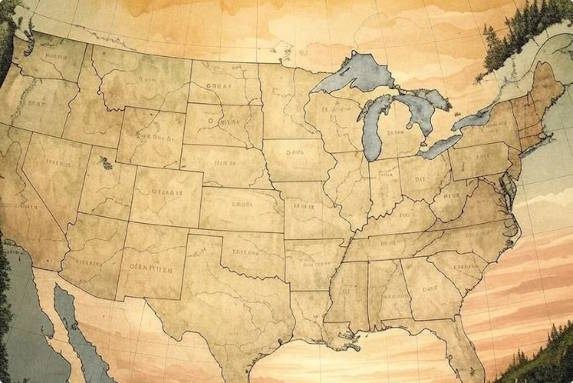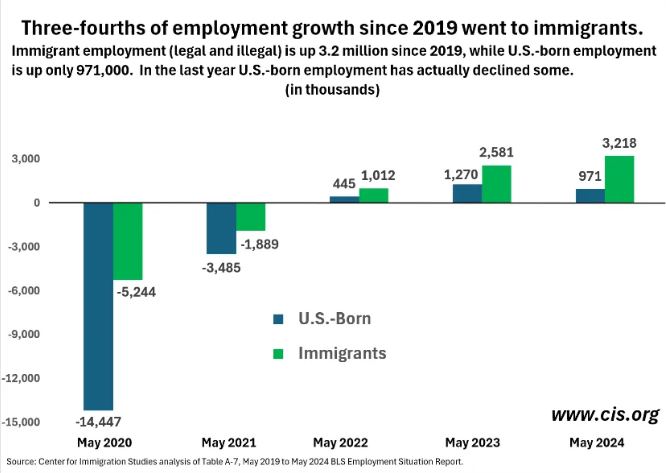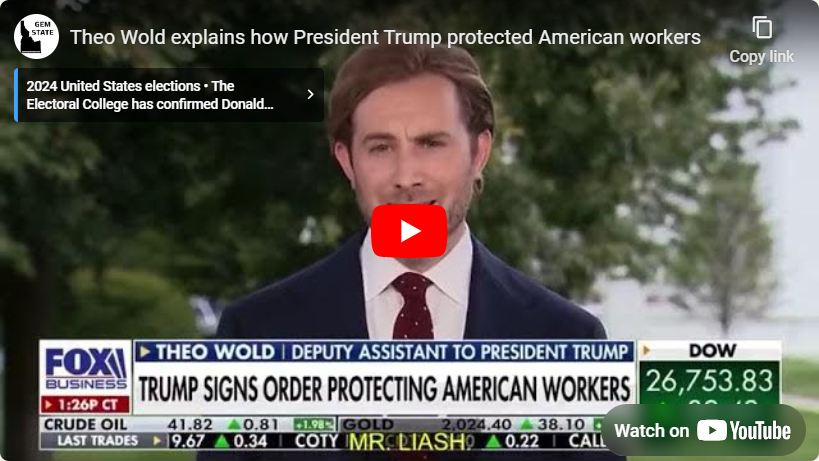
What is a Nation?
Does it still matter?
By Brian Almon
Last week, a sharp debate erupted on Twitter over the H-1B visa program. Elon Musk, Vivek Ramaswamy, and others advocated for expanding the program to attract the “best and brightest” talent to the United States, arguing it is essential for winning the future in a competitive global economy. Meanwhile, critics like Steve Bannon and Jack Posobiec argued that the program is plagued by fraud and often used to import lower-level employees willing to work for wages below what Americans typically demand.
Musk eventually clarified his position, admitting that the H-1B program needed fixing, but the debate shined a light on an issue that has been festering for many years. The purpose of the H1B program, created as part of the Immigration Act of 1990, was to bring in highly skilled foreign workers to fill vital positions in science, engineering, and information technology for which no qualified Americans could be found. However, Twitter users began digging through H1B postings, discovering that many were for entry-level jobs that should by all rights go to young Americans.
A poster named Robert Sterling did a deep dive on the H-1B program, coming away skeptical of how it currently works. David Reilly found that Boise-based Micron currently has nearly 200 open H-1B positions. An anonymous poster called Oilfield Rando discovered that a convenience store chain was advertising low-paid store manager positions for H-1B applicants, and wondered if it was actually a money laundering operation.
A mutual Twitter anon called Rycamor related how his colleagues were told that they were being laid off en masse in exchange for H-1B employees. Author Aaron Renn shared his personal experience with the H-1B program, and how they were told to prioritize H-1B employees ahead of American workers.
Theo Wold, former solicitor general of Idaho and onetime deputy assistant to President Trump, recounted the story of how he and his team saved American jobs when the government-operated Tennessee Valley Authority planned to replace them with foreign workers.
The U.S. Tech Workers account, which fights to protect American jobs from offshoring and outsourcing, pointed out that India lobbies heavily for the H-1B program, since it benefits that nation and its people at the expense of American citizens.
The debate also brought out some racial prejudices on both sides. Some Americans made unflattering comments about people from India, while some Indians suggested that Americans were lazy and stupid, and deserved to be replaced. Nevertheless, most of the debate was substantive, and the question at the heart of it all is about the concept of a nation.
What is the meaning of a nation? What is the purpose of a national government? Does America exist to give jobs to foreign workers, or should there be some level of protection for the American people? Right now we are told that we must import a class of foreign workers from Mexico and South America to do jobs that Americans won’t do, such as picking crops, working in meat packing plants, or landscaping services. We’re also told that there aren’t enough Americans to fill highly-skilled positions, so we need the H-1B program as well.
If that’s true, then one must ask what purpose is served by the American people. Are we meant to just sit back and enjoy universal basic income while all our jobs are handled by foreign guest workers?
The Center for Immigration Studies recently published a report showing that an outright majority of jobs since 2020 have gone to immigrants:

Is America a nation — a sovereign entity bound together by blood, by history, by culture, by shared customs — or is it simply an economic zone in a globalist economy, in which American workers are interchangeable cogs in a great GDP machine?
Human beings are different. It’s not about labeling different cultures as better or worse, but recognizing that there are differences that are more than skin deep. America is what it is because of the people who settled here — English and Scots-Irish, followed by Germans, Italians, Irish, Jews, Poles, Russians, and more. If you could snap your fingers and swap the population of the United States with that of nations such as India, Japan, Somalia, or France, would it still be America? Of course not. As future Vice President J.D. Vance said, “America is not just an idea. It is a group of people with a shared history and a common future. It is, in short, a nation.”
The old captains of American industry once had that kind of patriotism that put the American people first. Henry Ford’s innovations not only allowed all Americans to afford an automobile, but he made his workers some of the highest-paid in the country. Andrew Carnegie — himself an immigrant from Scotland — gave back to the country that gave him a chance by building libraries that allowed even the poorest Americans to share in high culture and education. Yet today we see a race to the bottom as founders and CEOs seek to offshore production and outsource their workforce in the name of profit.
I agree with Elon Musk that we should attract the best and brightest to this country. We are made better by men like him, Carnegie, or Wernher von Braun. Yet we must stop the abuse of the immigration system which is currently being used to undercut American workers. Young people need the option to work on farms and dairies, giving them valuable experience and a stake in our state’s economy. College students need to know that there will be jobs in IT, science, and engineering available to them when they graduate.
I believe in the radical idea that a government exists to serve its citizens, not use those citizens for the benefit of other nations. The federal government should serve the American people, and make sure they have every opportunity to succeed. In the same way, the government of Idaho should serve the citizens of Idaho, which is why it’s time to reform our immigration system at the state level as well.
Nationhood matters. Statehood matters. Citizenship matters. Let’s remember that before those concepts are washed away in a new globalist dystopia.
